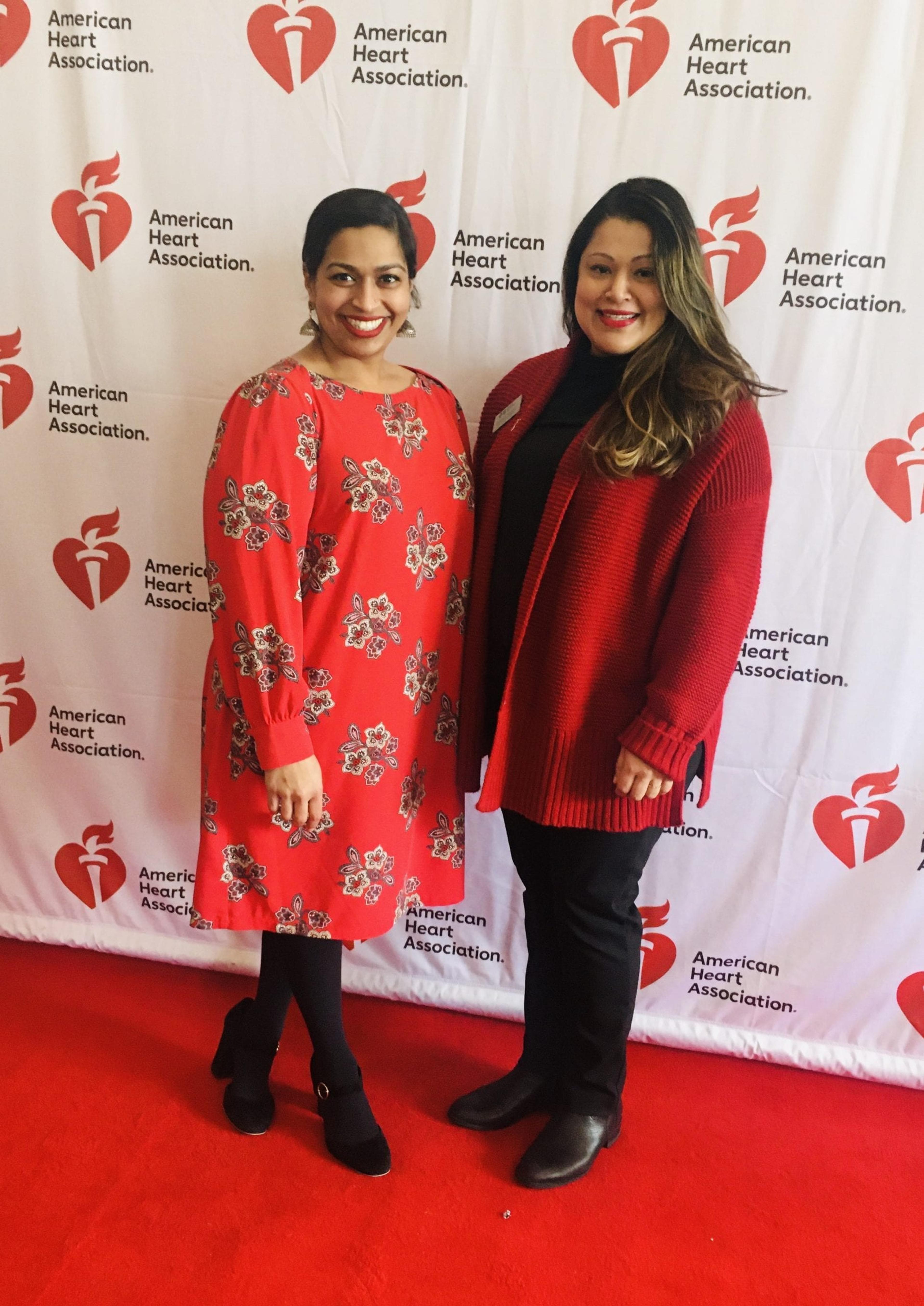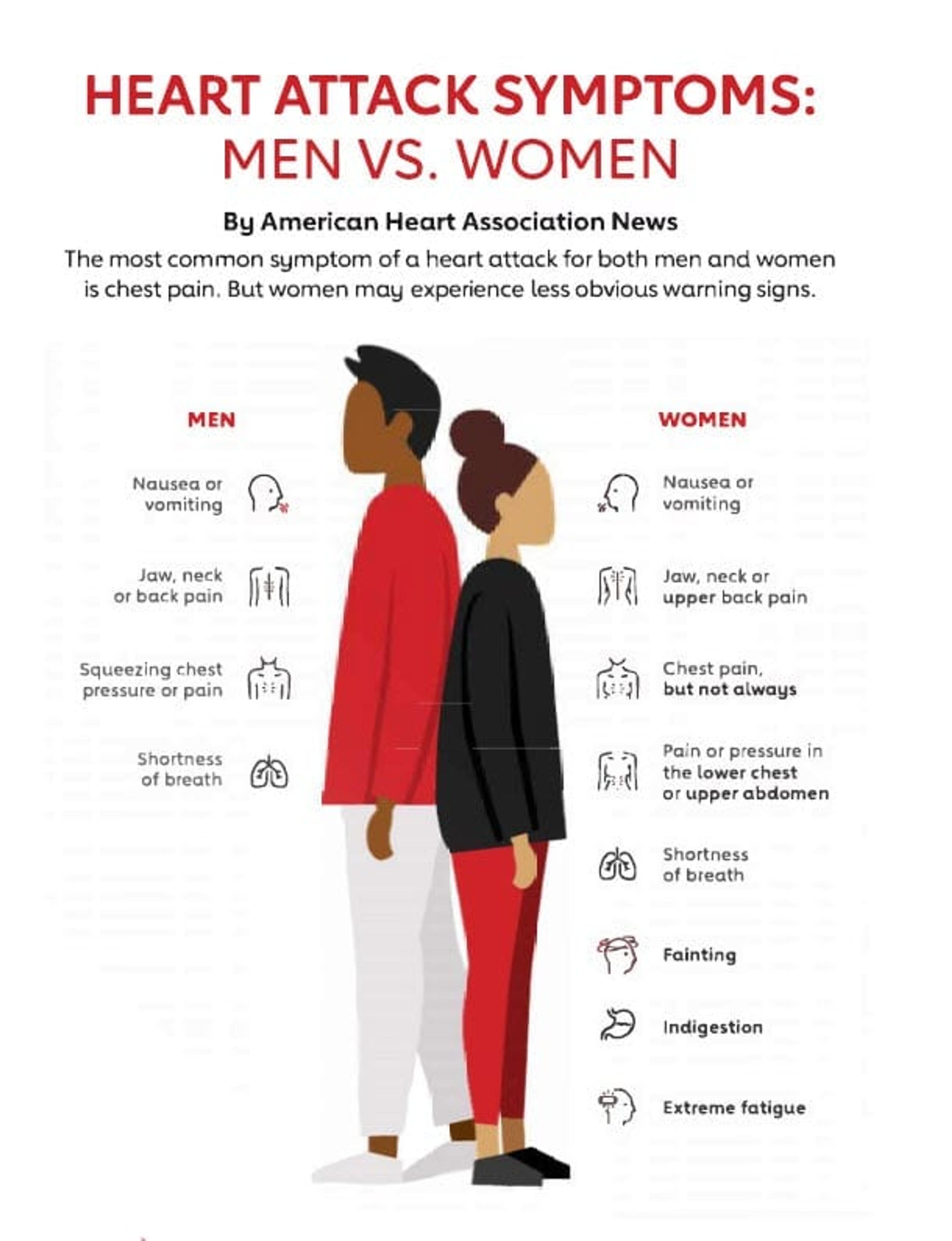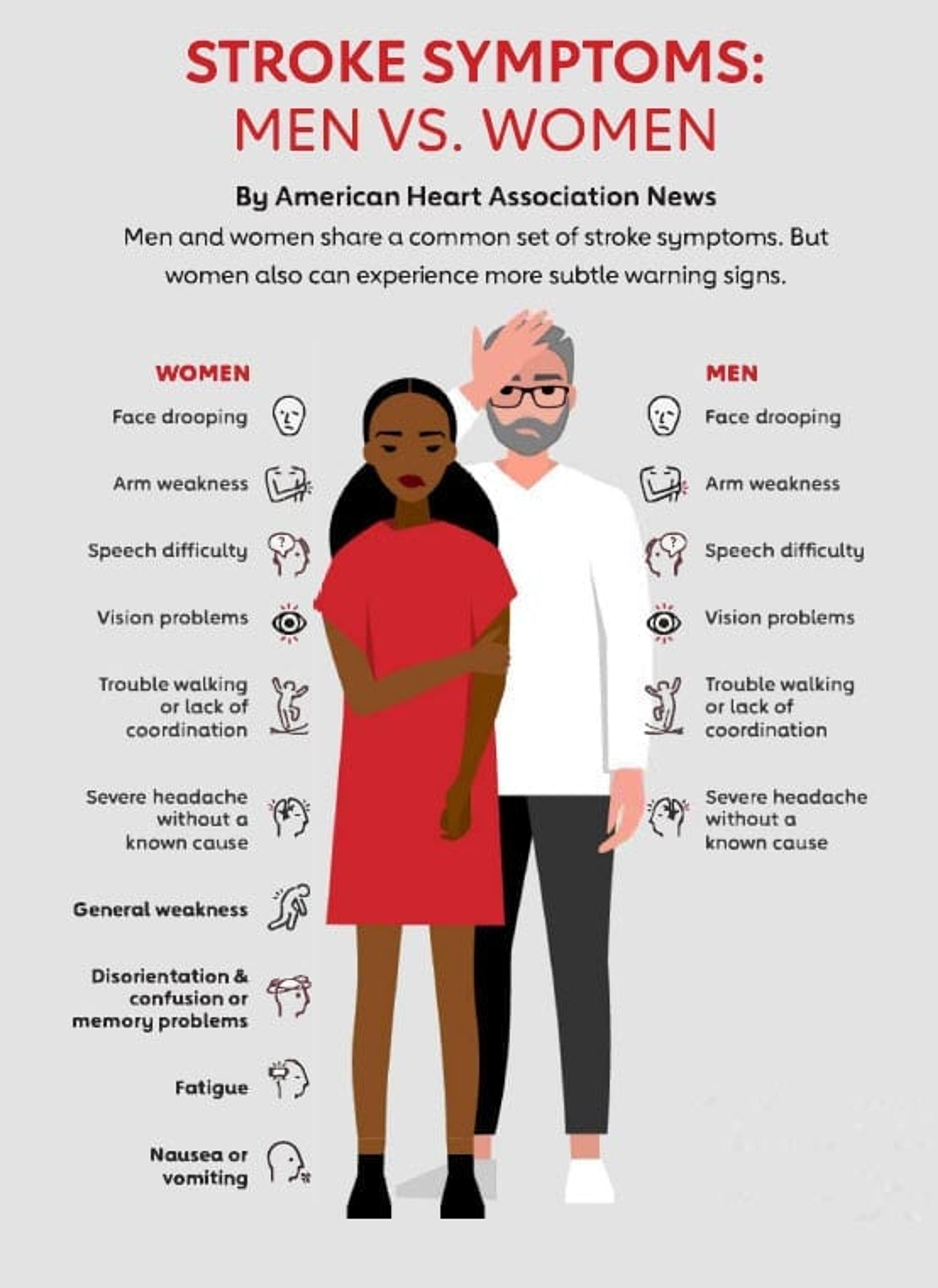Heart Health Advice from #GoRedGrandRapids Event
Julie Bitely
| 4 min read

Cardiovascular disease is the leading killer of women, claiming a life every 80 seconds. The American Heart Association’s Go Red for Women campaign aims to end heart disease and stroke in women by advocating for research, sharing information about symptoms, risk factors and preventive measures and spotlighting survivors.

On Thursday, Feb. 13, a crowd donning their most festive red attire gathered for the Grand Rapids Go Red for Women Luncheon, one of many that take place in Michigan and across the country in February. Along with plenty of selfie backdrops, silent auction bidding, a festive DJ spinning tunes and more fun, attendees heard some practical heart health tips from panelists who spoke during the luncheon. Read their top takeaways here:
- “It’s never too late to start changing habits.” – Dr. Thomas Boyden, Jr., program director, Preventive Cardiology, Spectrum Health | His top three recommendations? Better nutrition, more exercise and stop smoking. “If you are really focused on good nutrition, you’re staying reasonably active and you’re not smoking, the chances that you’re going to have complications from heart disease or cardiovascular disease or stroke are extremely low.” In fact, 80% of cardiac and stroke events may be preventable.
- “When you hear that voice in your head that says something is not right, you have to act on it.” – Paulette Cancler, survivor, suffered a widowmaker heart attack in 2015 | Cancler’s heart attack started with indigestion. When antacids and other home remedies didn’t work and she couldn’t sleep, she knew it was time to get help. She went downstairs, unlocked the door and called 911. The operator told her not to hang up the phone and she got help. With odds of survival at less than 1%, Cancler is fortunate to be alive and it’s because she listened to her body and didn’t ignore symptoms.
- “Just because you’re young … that doesn’t mean it can’t happen to you.” – Dr. Karen Kennedy, family medicine physician, Mercy Health Browning Claytor Health Center | Kennedy has treated young people with cardiovascular disease in her practice and wants everyone to know the importance of learning about family heart health history and its links to your risk of developing disease. Knowing the signs and symptoms of a cardiac event is also extremely important as are preventive lifestyle factors. “People in that age group just don’t think that will happen to them,” she said.
- “Do not wait or ignore symptoms.” – Pamela Munster, M.P.T., Mary Free Bed Rehabilitation Hospital | Through her work as a member of the inpatient stroke team, Munster helps people recover and rebuild their abilities after a stroke. Knowing the signs of a stroke or heart attack can be the difference between life and death, full recovery or lifelong complications. The earlier you get to the hospital when you suspect you might be having a stroke or heart attack, the better your outcomes are likely to be. “To have the best possible recovery, it is extremely important to have early intervention and this means … recognizing the symptoms of a heart attack or stroke,” Munster said. See the below charts to understand the differences in symptoms that can exist between men and women when it comes to heart attack and stroke.

The last piece of advice came from Kellie Norton, director, West Michigan Upper Peninsula Administration, Blue Cross Blue Shield of Michigan. Blue Cross is a sponsor of the event and Norton is the chair-elect for the 2021 luncheon. Her message: “We can do something about this,” Norton told the crowd. She encouraged everyone to support the AHA’s efforts, noting the organization’s impact locally by advocating for anti-smoking legislation, placing AEDs in high schools, churches and community centers and providing valuable education resources. Find out why Norton is so passionate and involved with the AHA's mission here and learn how you can volunteer and make a difference in your community here.


Read more about heart health:
- Outrunning a Heart Condition
- How Heart Disease Affects Different Races
- Top 5 Myths About Heart Disease
Main image photo credit: ThitareeSarmkasat Employee images photo credit: MI Blues Perspectives Infographics courtesy of American Heart Association





